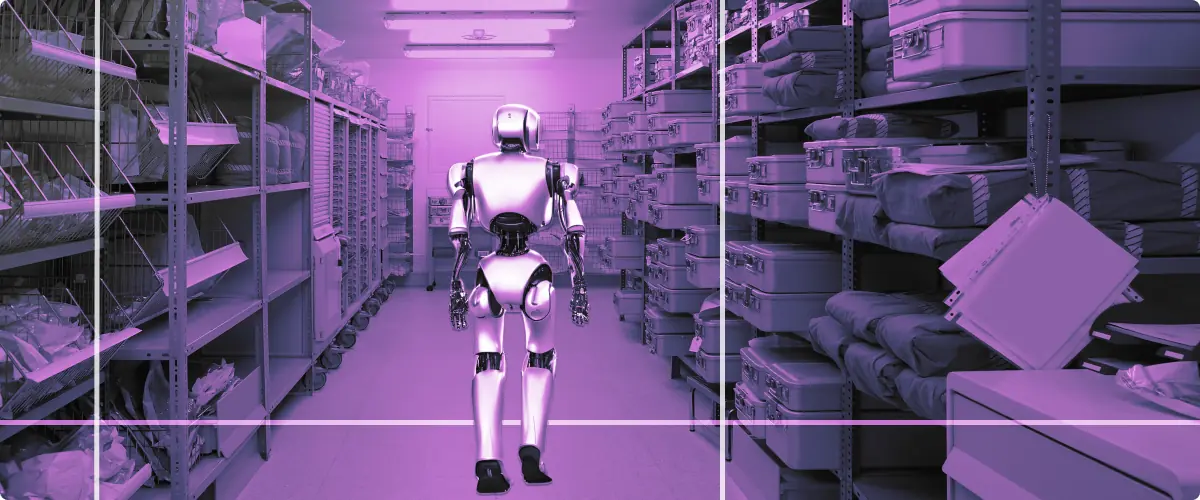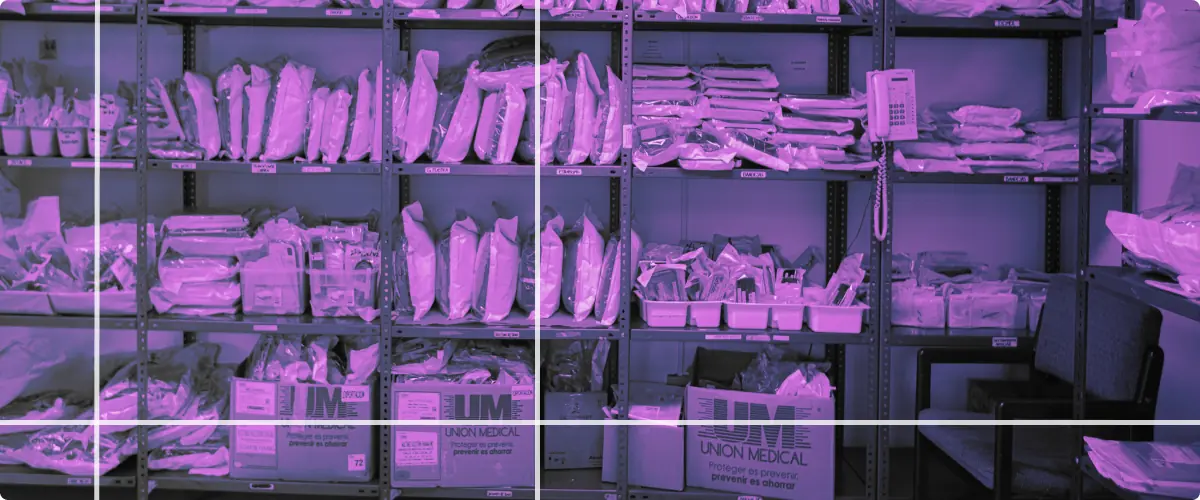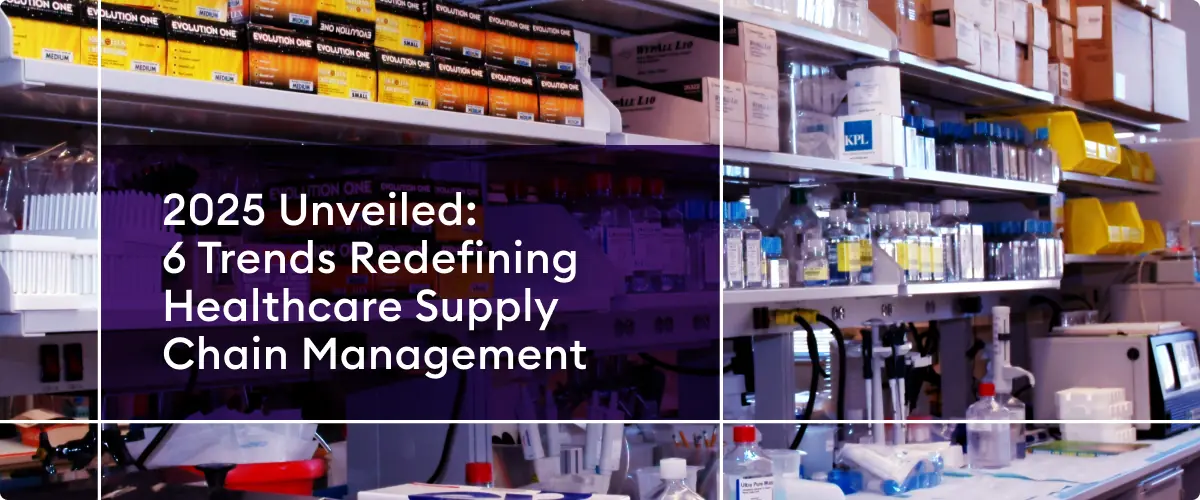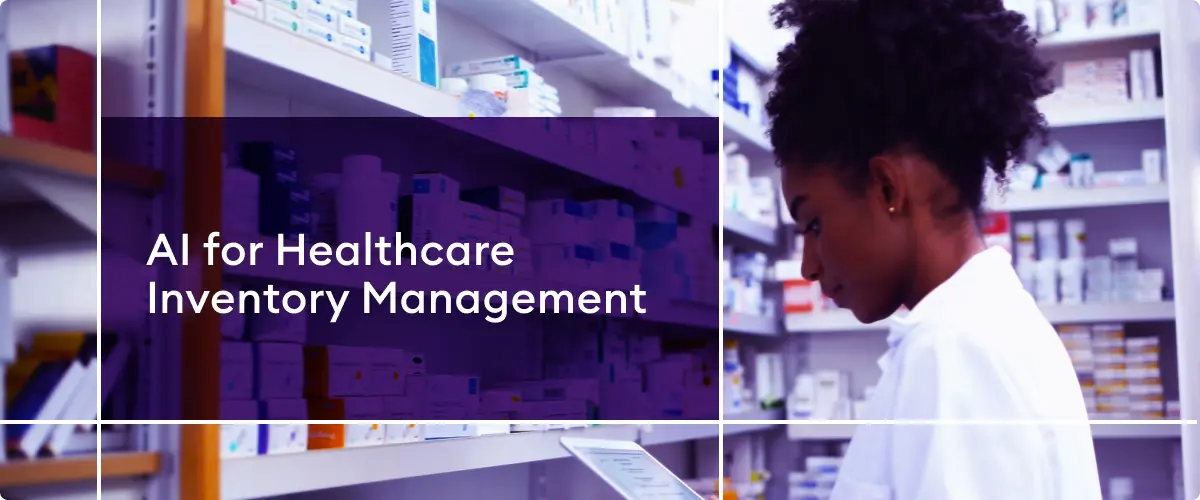In the fast-paced world of healthcare, effective inventory management is a critical component of operational success. Hospitals deal with a vast array of medical supplies, medications, and equipment, making accurate inventory tracking an indispensable part of their supply chain management. As healthcare facilities undergo digital transformation, artificial intelligence (AI) and emerging technologies are revolutionizing inventory management. These technologies streamline processes, enhance patient care, and drive significant cost savings.
This blog explores how AI and advanced digital technologies are transforming hospital inventory management, the benefits and challenges of implementation, and the significant impact on hospital operations.
The table below details these digital technologies and their applications, highlighting the significant benefits they offer.
| Type of Technology | Use Case | Benefit | Biggest Challenge | Other Useful Information |
|---|---|---|---|---|
| Inventory Management Software | Centralized platform for managing all supplies and equipment, accessible from anywhere with an internet connection. | Real-time inventory visibility and centralized management of supplies and equipment. | Integration with legacy systems and maintaining high data quality. | Often integrates with barcode scanners and RFID. |
| RFID & Barcode Scanners | Automates data collection for inventory tracking. | RFID provides real-time tracking; barcode scanners offer affordable and accurate scanning solutions. | RFID systems may not work well in environments with high metal content. Barcode scanners require manual interaction. | RFID offers real-time updates compared to batch processing with barcode scanners. |
| AI & Predictive Analytics | Forecasts future demand for supplies based on historical data and trends. | Enhanced demand forecasting, reducing stockouts, and overstocking through data-driven insights. | Requires large volumes of clean, structured data to deliver accurate predictions and mitigate algorithm bias. | Can be applied to anomaly detection, equipment monitoring, and workflow automation. |
| Image Recognition | Automates identification and tracking of medical supplies using cameras. | Enables automated inventory checks and identification of supplies using cameras. | Requires highly trained models and may struggle in environments with clutter or poor visibility. | Can integrate with mobile devices or be part of a fixed camera system to automate supply monitoring. |
| Robotic Process Automation (RPA) | Automates repetitive tasks in the supply chain, such as order processing and generating reports. | Automates high-volume repetitive tasks, reducing manual labor, and human error. | Complex tasks may require extensive configuration, and unanticipated workflow changes can lead to errors. | Ideal for rule-based tasks like order fulfillment but may require integration with more complex AI-driven systems. |
📌 Curious about the tradeoffs? Explore barcode tracking vs. vision AI for medical supplies.
How AI and Advanced Digital Technologies are Revolutionizing Healthcare Inventory Management
Hospitals are undergoing a digital transformation in their supply chain and inventory management practices. This shift is driven by the adoption of various technologies, including cloud-based software, automation, and artificial intelligence.
Let’s explore the key technologies and their applications in healthcare inventory management:
1. AI-Powered Inventory Management Systems
AI-powered inventory management systems are at the forefront of this revolution. AI-driven inventory systems utilize machine learning to analyze vast datasets—such as historical usage, patient volume trends, and supplier lead times—enabling precise demand forecasting and inventory optimization. Key features of AI-powered inventory management systems include:
- Advanced demand forecasting using machine learning algorithms
- Real-time inventory tracking and automated reordering
- Intelligent par level management based on historical data and predictive analytics
2. Cloud-Based Inventory Management Software
Cloud-based inventory management systems offer centralized control of medical supplies and equipment, accessible from any location via the internet. These systems offer real-time inventory visibility across locations, streamlined ordering and procurement processes, and improved inventory accuracy. Benefits of cloud-based solutions include:
- Scalability and remote access
- Real-time data sharing across multiple facilities
- Centralized inventory management operations for healthcare systems
3. RFID Technology and AI Integration
Radio Frequency Identification (RFID) technology, when integrated with AI, offers enhanced visibility and automation in hospital inventory management. This integration eliminates the need for manual scanning, reducing the risk of human error and increasing efficiency. RFID tags store and transmit critical data about medical items—such as their location, usage history, and even environmental conditions like temperature. AI-enhanced RFID systems provide:
- Real-time location tracking of medical supplies and equipment
- Automated data collection and analysis
- Predictive maintenance for medical equipment based on usage patterns
4. Computer Vision AI in Inventory Management
AI-powered computer vision technology is making significant strides in hospital inventory management. Through cameras and AI-powered image recognition, these systems automate essential inventory management tasks such as quality checks, counting supplies, and tracking expiration dates. Key features of computer vision systems include:
- Automated visual inspections for quality control
- Image recognition for quick and accurate inventory counts
- Expiration date tracking and alert systems
- Integration into mobile apps for on-the-go inventory checks
5. Natural Language Processing for Improved Ordering
Natural Language Processing (NLP), a subset of AI, streamlines hospital inventory management by enabling voice-activated commands, automating supply requests, and enhancing staff communication through intelligent chatbots. Benefits include:
- Voice-activated inventory checks and orders
- Automated processing of supply requests
- Intelligent chatbots for staff inventory queries
Benefits of Implementing AI and Advanced Technologies in Hospital Inventory Management
The adoption of AI and advanced technologies in hospital inventory management offers numerous benefits:
- Optimized inventory levels: AI-powered systems can predict future demand with high accuracy, reducing stockouts and overstocking.
- Improved cost savings: By maintaining optimal inventory levels, hospitals can significantly reduce waste and carrying costs.
- Enhanced efficiency and productivity: Automation of routine tasks frees up staff time for higher-level activities and patient care.
- Real-time visibility: Advanced systems provide up-to-the-minute information on stock levels, locations, and usage patterns across multiple facilities.
- Improved data accuracy: By reducing manual data entry, these technologies minimize human errors and improve overall data quality.
- Better patient care: Ensuring the right supplies are available when needed contributes to improved patient outcomes and satisfaction.
Challenges and Considerations in Implementing AI for Hospital Inventory Management
While the benefits are significant, hospitals face several challenges when implementing AI and advanced technologies for inventory management:
- Data quality and integration: AI systems require large amounts of clean, high-quality data to function effectively. Integrating new systems with existing workflows and ensuring data integrity can be complex.
- Initial investment: Implementing AI-driven inventory systems often involves significant upfront costs, which may pose challenges for smaller healthcare providers.
- Staff training and change management: Proper training is essential to ensure staff adoption and minimize disruptions to daily operations.
- Data security and compliance: Hospitals must address concerns related to data security and compliance with regulations such as HIPAA to protect sensitive patient information.
- System customization: Every hospital has unique needs, and AI systems may require significant customization to work effectively in specific environments.
The Future of AI in Hospital Inventory Management
As AI and related technologies continue to evolve, we can expect to see even more advanced applications in hospital inventory management. AI-powered inventory systems will increasingly integrate with Internet of Medical Things (IoMT) devices, providing even more granular data on supply usage and equipment performance. Blockchain technology could be used to create tamper-proof records of inventory movements, enhancing traceability and reducing fraud. Furthermore, AI-powered robots could be employed for automated storage and retrieval, further reducing the need for manual intervention in inventory management. These advancements promise to revolutionize hospital operations, improving efficiency and patient care simultaneously.
AI-Driven Hospital Inventory Systems: The Key to Operational Excellence in Healthcare
AI and advanced digital technologies are poised to transform hospital inventory management, offering solutions to long-standing challenges in healthcare supply chains. From AI-powered demand forecasting to computer vision for inventory tracking, these innovations are transforming how hospitals manage their supplies and equipment.
While implementing these technologies comes with challenges, the potential benefits in terms of improved efficiency, reduced costs, and enhanced patient care are substantial. As AI and related technologies evolve, hospitals that adopt AI-powered inventory systems will be positioned to navigate the complexities of modern healthcare, leading to enhanced efficiency, lower costs, and improved patient care.
Chooch Vision AI Next-Gen Hospital Inventory Management Solutions
Leading healthcare institutions trust Chooch for their inventory management needs. With deep expertise in AI-powered solutions, Chooch Vision AI addresses key considerations such as real-time data tracking, SKU identification, accurate forecasting, and seamless integration with your existing workflows and databases.
Ready to Stop the Guesswork?
If you’re still relying on barcode scans or staff memory to manage millions in critical supplies, now’s the time to move forward. Let AI do the work—so your team can focus on what matters most: patient care.
Schedule a consultation and see how a touchless, autonomous inventory system could work in your hospital.


























